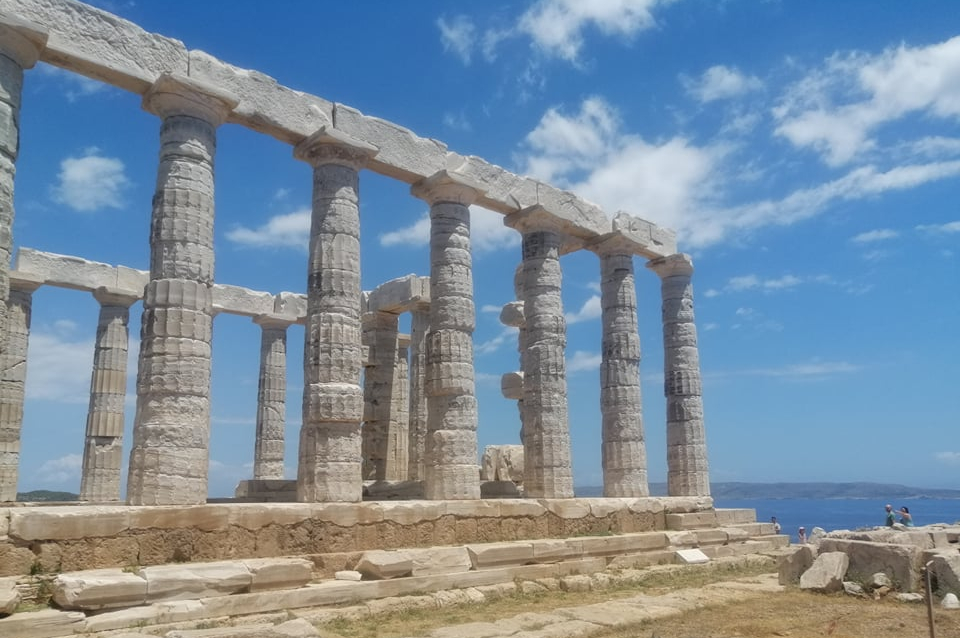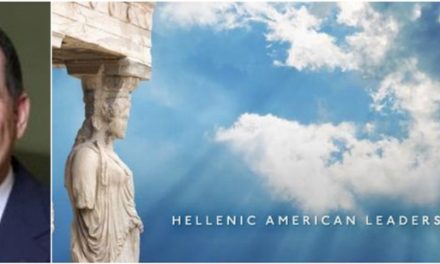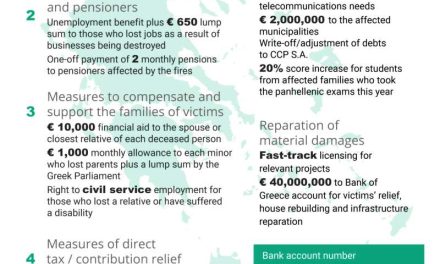Kostis Alexandris, Secretary-General for Public Diplomacy, Religious and Consular Affairs at the Ministry of Foreign Affairs describes in his article published in “Kathimerini” Sunday newspaper edition the importance of national reputation as a public good and as a favorable investment:
What motivates a foreigner to travel, invest, study, or even come to live in Greece? It is Greece’s history? The culture? The natural habitat? The climate? Investment opportunities? The quality of services? Personal experiences? The image of the country in general? And finally, how important is the image, the brand of a nation in international public opinion?
The reason for the above questions was the online discussion titled “Turning the Tide: How to reverse a negative image. The case of Greece“, organized by the General Secretariat of Public Diplomacy of the Ministry of Foreign Affairs, in the context of the first Greek Public Diplomacy Talks (PD Talks), between professors Nicholas Cull, of the Southern California and Stathis Kalyvas, University of Oxford.
 Greece has undoubtedly received strongly negative publicity for the last ten years. A look at the front pages of the most important international media of the period gave the impression that Greece was an “irresponsible and failed state” with “corrupt institutions and citizens” that was torn between “bankruptcy” and “Grexit”. In 2019 something seemed to change. According to the annual report of the General Secretariat of Public Diplomacy about the image of Greece in the international media, for the first time in 10 years, the positive reports outweighed the negative ones. 5,730 articles in 40 international media were analysed, showing that developments in the field of Greek Economy and Foreign Policy were the main sources of positive publicity for 2019, while in the vocabulary of international media positive concepts emerged next to the entry “Greece”, such as “progress”, “recovery” and “security”. The momentum of positive publicity continues today, with the main source being the successful way in which our country managed the COVID 19 pandemic.
Greece has undoubtedly received strongly negative publicity for the last ten years. A look at the front pages of the most important international media of the period gave the impression that Greece was an “irresponsible and failed state” with “corrupt institutions and citizens” that was torn between “bankruptcy” and “Grexit”. In 2019 something seemed to change. According to the annual report of the General Secretariat of Public Diplomacy about the image of Greece in the international media, for the first time in 10 years, the positive reports outweighed the negative ones. 5,730 articles in 40 international media were analysed, showing that developments in the field of Greek Economy and Foreign Policy were the main sources of positive publicity for 2019, while in the vocabulary of international media positive concepts emerged next to the entry “Greece”, such as “progress”, “recovery” and “security”. The momentum of positive publicity continues today, with the main source being the successful way in which our country managed the COVID 19 pandemic.
 Do the above suffice to let us rest assured? Definitely not. The positive image of a country is a long-term, multifactorial process and it is something we must work on systematically. What image do we want, what image do we have and what image can we have as a country? To answer that, a high degree of self-awareness is required.
Do the above suffice to let us rest assured? Definitely not. The positive image of a country is a long-term, multifactorial process and it is something we must work on systematically. What image do we want, what image do we have and what image can we have as a country? To answer that, a high degree of self-awareness is required.
As far as Greece is concerned, there is an interesting view by Professor Stathis Kalyvas, who, talking about the “name” of our country, added, alongside its history, a diptych consisting of a pioneering dimension and the aspect of balance. A pioneering dimension lies in the sense that Greece is a success story, one of the nation-states that emerged from the dissolution of empires and managed, despite difficulties and adversities, to be included today among the developed states. At the same time, it emits the philosophy of metron, balance as a way of life. Balance, I would add, between work and family, tradition and innovation, logic, and emotion.
The importance of the image was also highlighted by Nicholas Cull. According to the professor, we live in the age of “reputational security”. The term means that the image of a country in international public opinion also contributes to its security.
I will dwell on this aspect. It is a fact that national reputation is as important to a country as personal reputation is to an individual. The director of the Center for Public Diplomacy at USC Annenberg, Professor Jay Wang, argues that “a country’s image is a form of public good as it creates either an enabling or a disabling environment in which nation-states pursue their goals”.
 The national image, as a component of a country’s soft power, combined with military and economic power, is a determining factor in international relations and is also the basic requirement of public diplomacy. Through this public face of traditional diplomacy, communication with international public opinion takes place, in an effort to make ideas, values, institutions, culture, as well as the national goals and the current policies of the country understandable. A good national image does not only attract investment and economic growth, but also allies; people who speak positively and voluntarily defend the interests of the country. We need collaborations and synergies because only then will we be able to build relationships of trust. In the era of globalization, the challenge is also to participate in solving global issues such as COVID-19, the environment, human rights, armed conflicts, cultural goods trafficking, etc.
The national image, as a component of a country’s soft power, combined with military and economic power, is a determining factor in international relations and is also the basic requirement of public diplomacy. Through this public face of traditional diplomacy, communication with international public opinion takes place, in an effort to make ideas, values, institutions, culture, as well as the national goals and the current policies of the country understandable. A good national image does not only attract investment and economic growth, but also allies; people who speak positively and voluntarily defend the interests of the country. We need collaborations and synergies because only then will we be able to build relationships of trust. In the era of globalization, the challenge is also to participate in solving global issues such as COVID-19, the environment, human rights, armed conflicts, cultural goods trafficking, etc.
In historical terms, the ten years of economic crisis will be equivalent to a fraction of a second. The timeless image of Greece was hurt, but it withstood the crisis. And it endured because, when the economy collapsed, it was the values of the country, the culture, and the attitude of its people that kept its image and in many cases created waves of empathy.
So to the question of whether the positive image of a country is, above all, public good or a profitable investment, the answer is both.
Read more: Join the first “Greek Public Diplomacy talks” webinar: the new initiative of the Sec-Gen for Public Diplomacy; “Public Diplomacy in Practice”: Inaugural seminar of the Secretariat General for Public Diplomacy; Sec-Gen for Public Diplomacy, Religious and Consular Affairs Constantinos Alexandris on building the new image of Greece; The practice of Greek Public Diplomacy and its contribution to the country’s image abroad
F.K.














